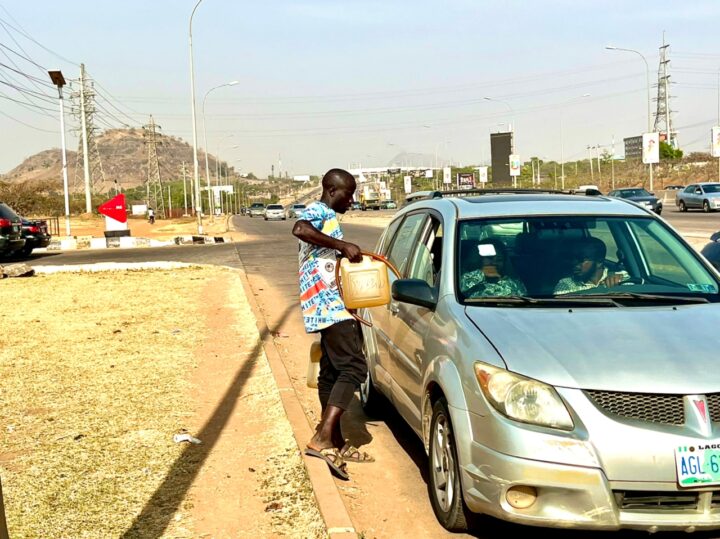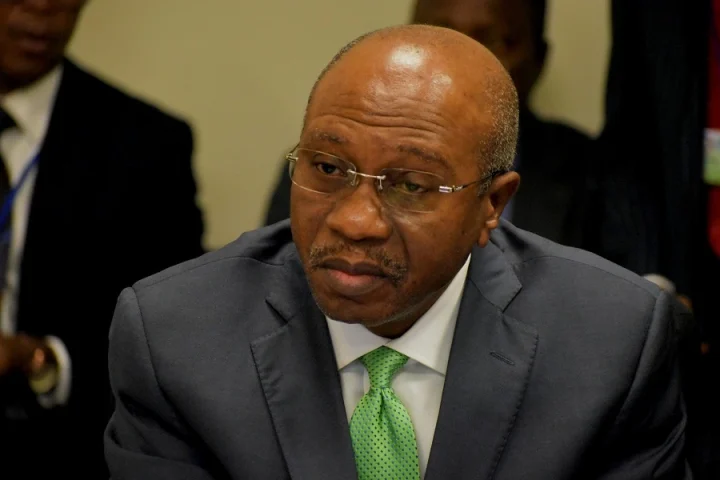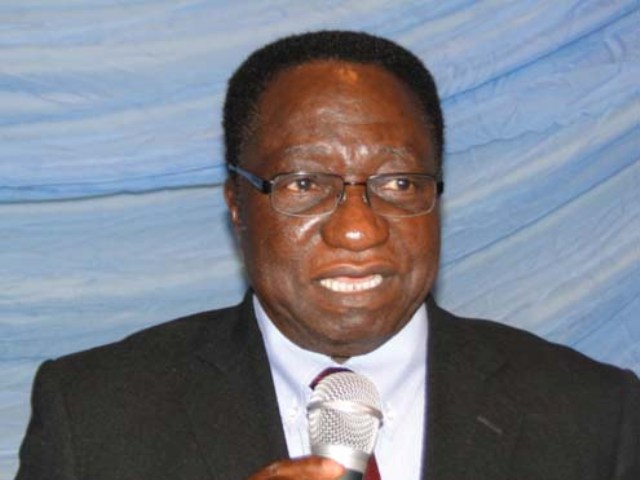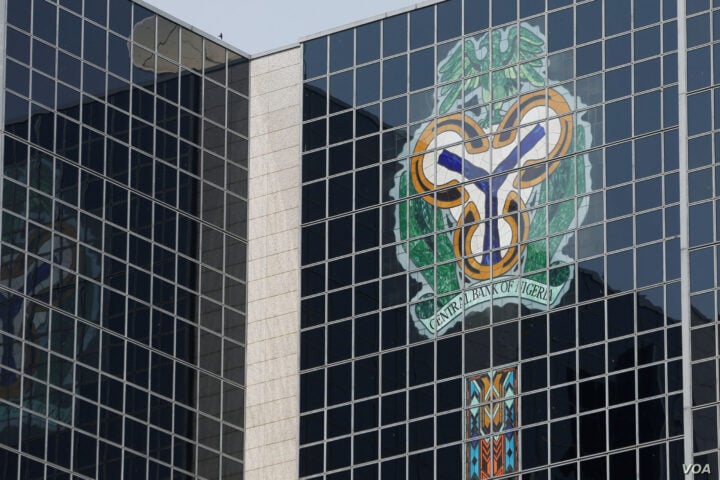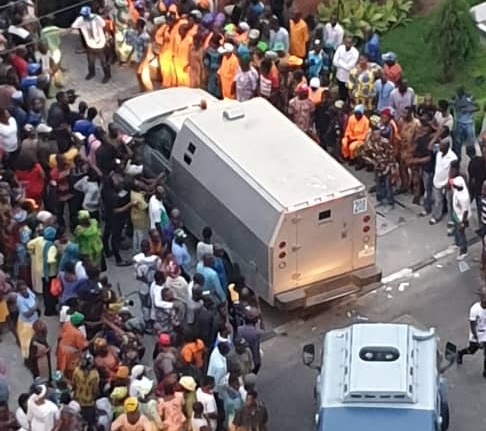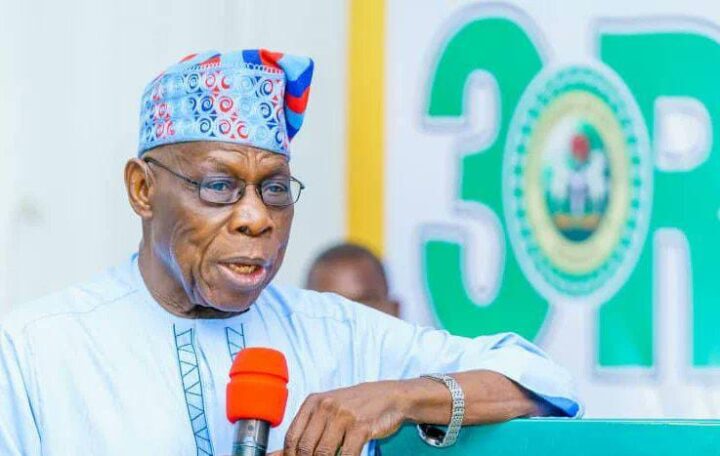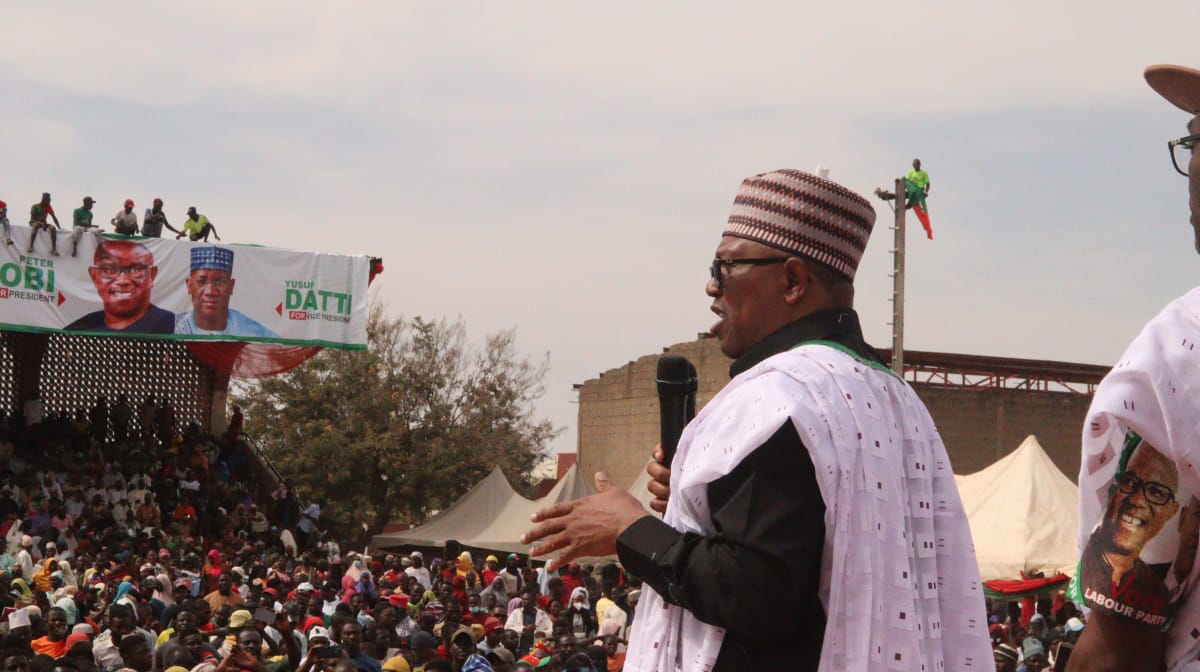Aliyu Ayuba next to his jerry cans. Photo credit: Claire Mom/TheCable
Abayomi Alade, a taxi driver in Abuja, Nigeria’s capital, is unhappy. Beads of sweat run down his face as his chest heaves with frustration at the fuel queue in a filling station at Mbora, Idu. He groans loudly, hurling curses at the other motorists attempting to cut corners in the queue.
It is his second attempt at getting fuel after four hours of waiting, and he has threatened to fight with anyone in his way. The fly buzzing in his face distracts him as he reaches for the insect angrily, redirecting his annoyance to something he can control.
The mood is the same all over the service station. While some motorists join in Alade’s occasional outbursts, others nurse their exasperation more patiently. But just outside the queue, a few metres from the station, Aliyu Ayuba, a black market fuel seller, does not share in the vexation. Were it not for the scorching sun, his smile is a few teeth away from lighting up the filling station.
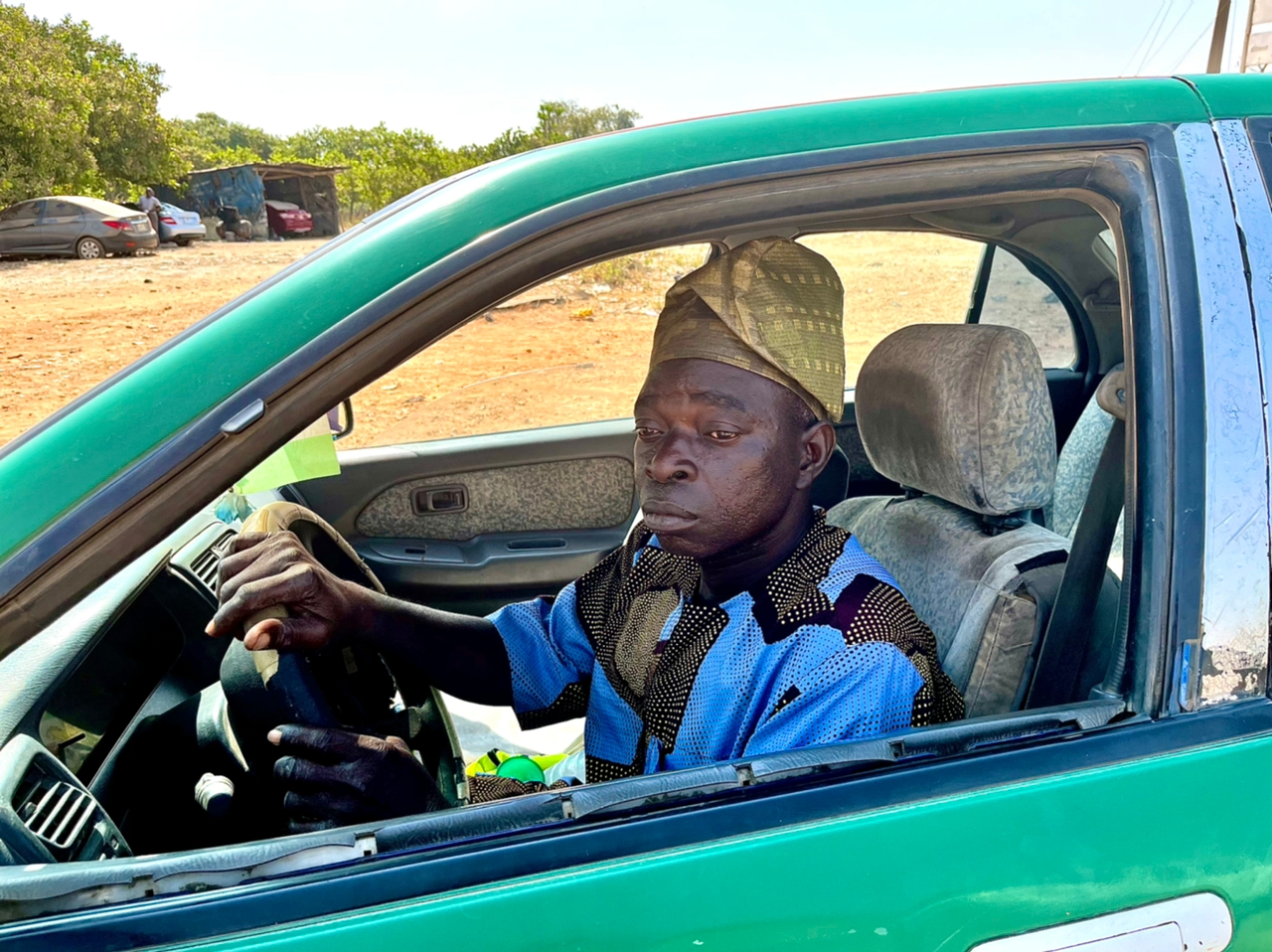
Next to Ayuba is an empty 10-litre jerry can, proof of his morning sales. Clad in a pair of shorts and a shirt, he adjusts the beads on his hand and moves to reposition his hat because a “black market seller still has to look good to attract customers”.
Advertisement
He quickly brings two more jerry cans of the same volume and places them in the open, teasing the motorists who stare longingly at the golden liquid. Ayuba smiles. His theatrics is working and he knows very soon, he would need to re-fill his cans.
“You can’t blame me. I graduated in 2015 with a diploma in computer education but I haven’t had a job since then,” he tells TheCable.
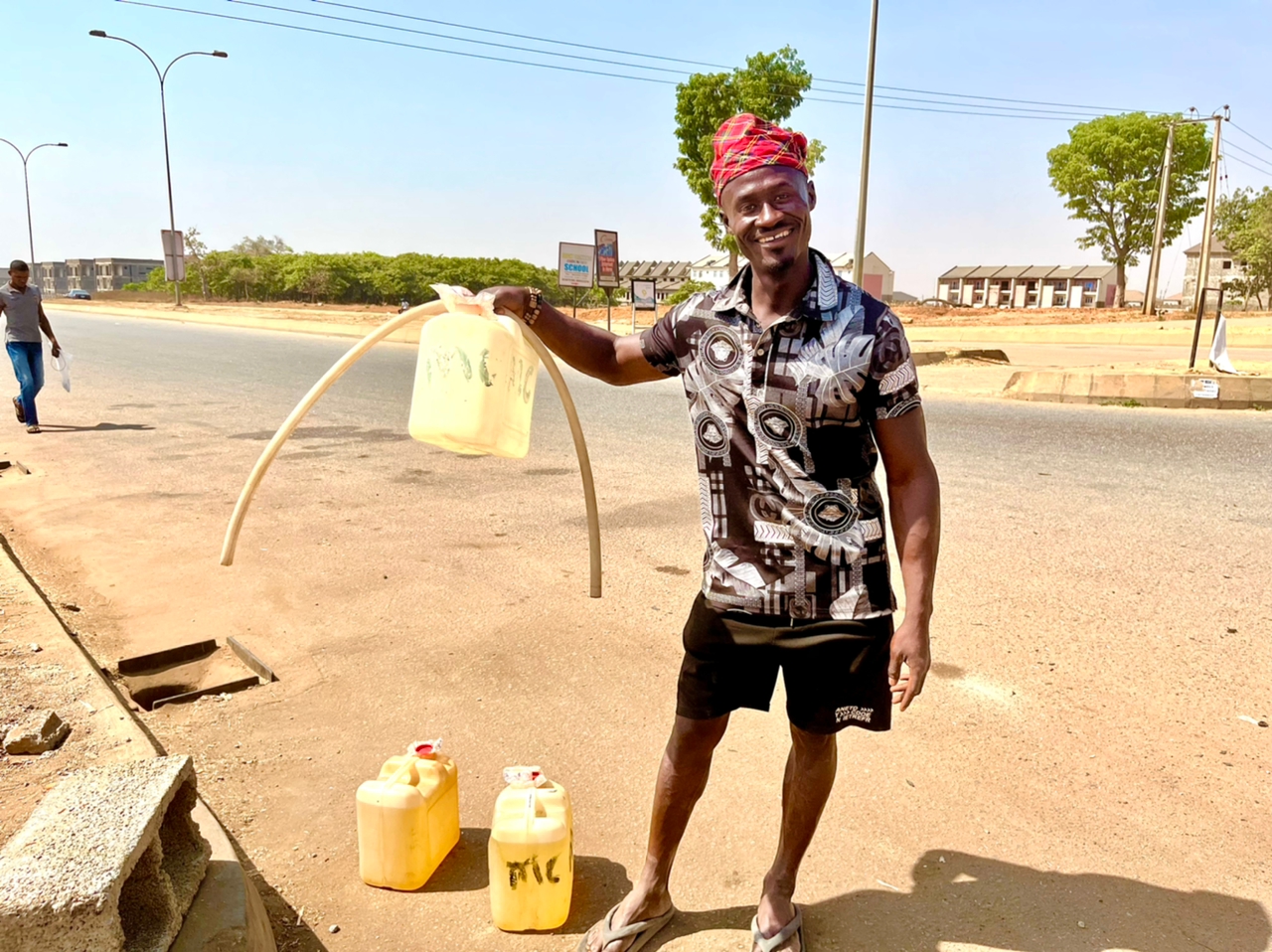
“I buy fuel from the black market station so that I can have food,” he says, adding that his profit of at least N4,000 per day covers just enough.
Advertisement
“I want to see a line from here to SIL estate,” he points into the distance dramatically, “because if you stay on the line for too long and you have somewhere else to go, you will have no option but to buy my own. So, my prayer to God is that the line continues.”
SIL estate is about a kilometre from the filling station.
In Central Area, Hassan Bagudu, another black market fuel seller, shares the same sentiments as Ayuba.
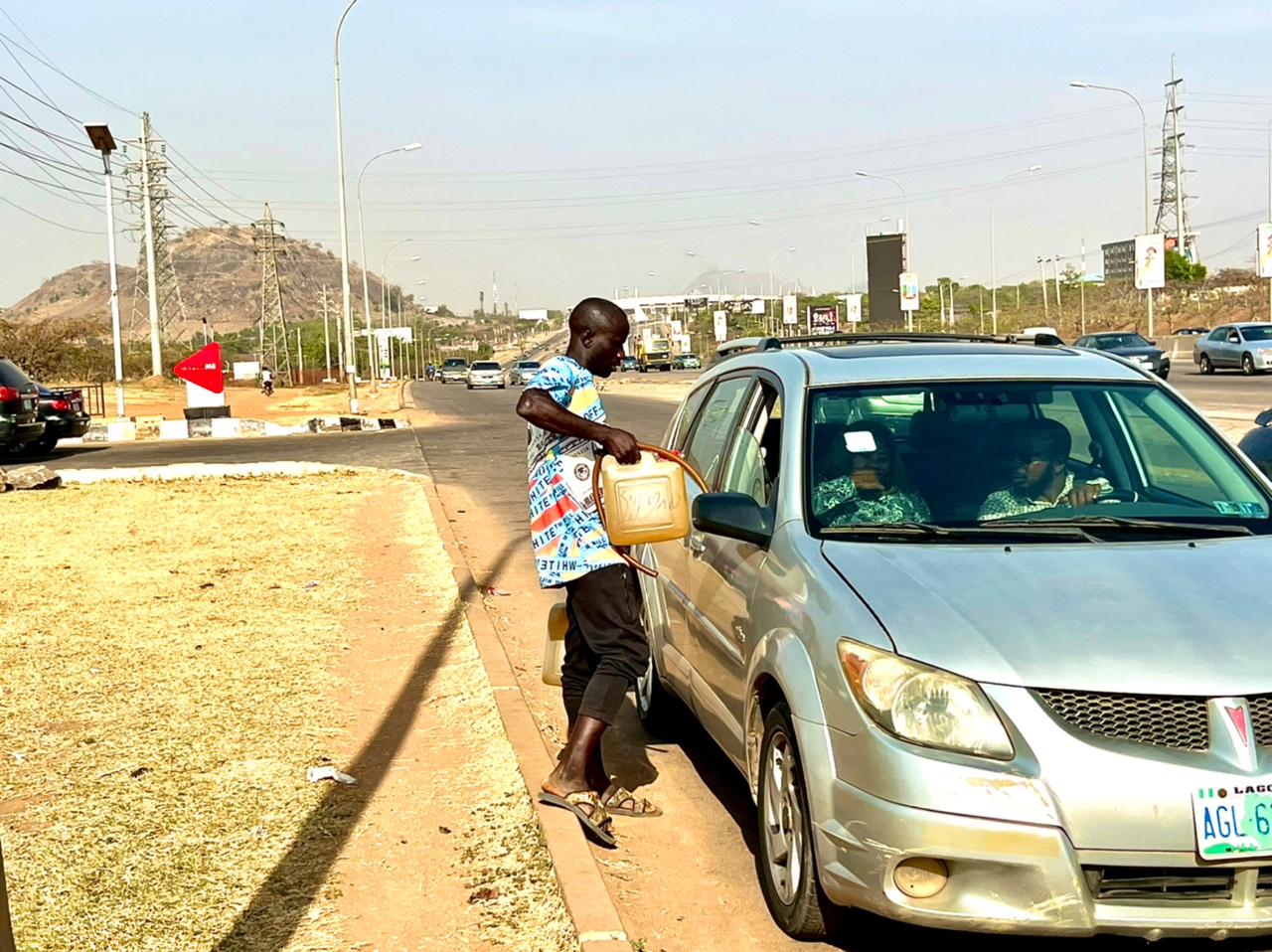
Bagudu tells this reporter he has been in the business for over a decade. For him, the logic is simple. He identified a need and stepped in to provide a solution. It’s the irony of an oil-producing country.
Advertisement
Although he says business is slow for him sometimes because his suppliers do not provide the fuel as often and as easily as he would like, he is optimistic the government would not fail in prolonging the scarcity.
“We need this scarcity now more than ever. Before, it was easy to get; but now, it’s like we’re the ones hustling the fuel more than you people,” he says.
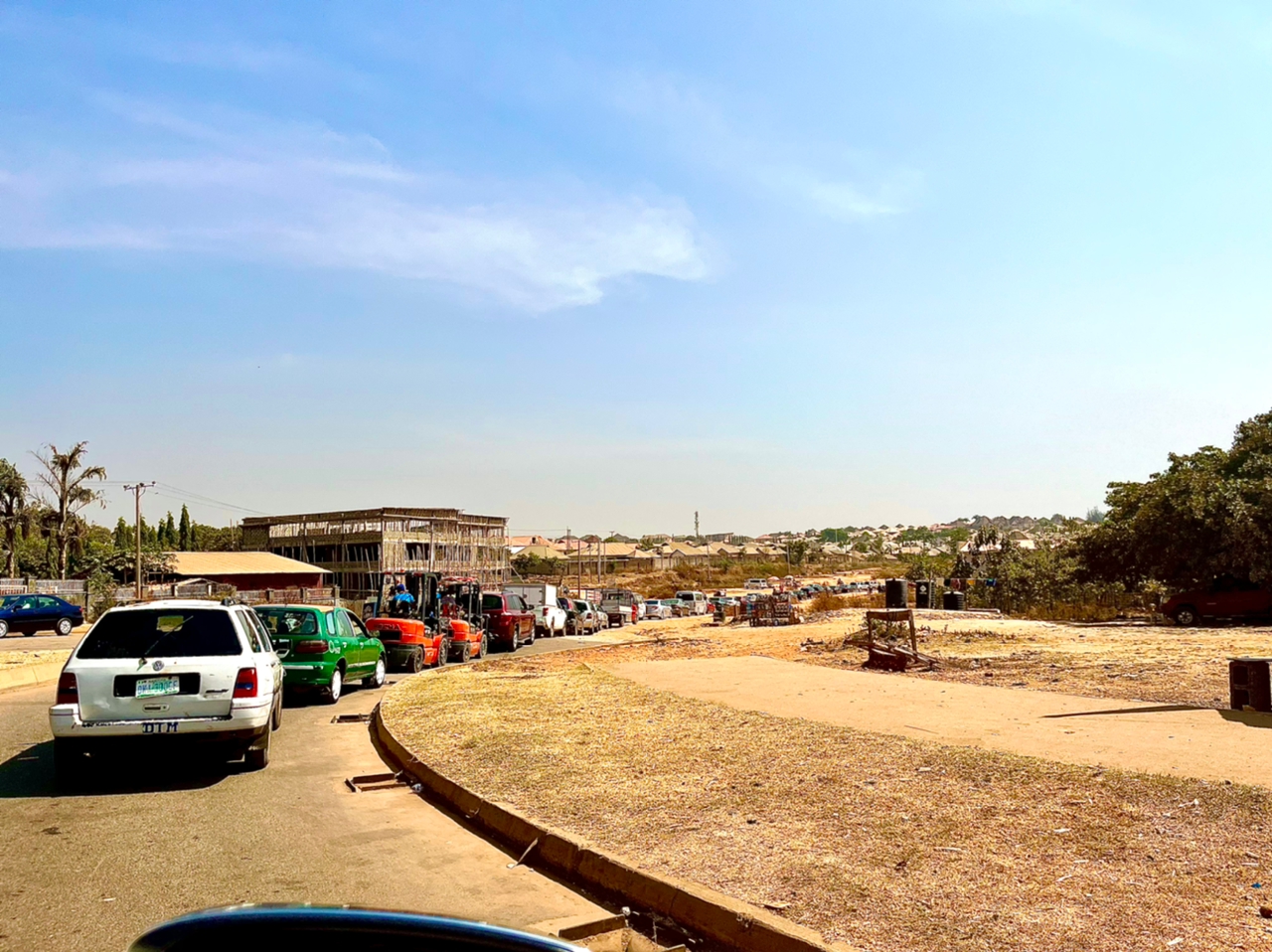
Central Area is one of Abuja’s business hubs, so Bagudu does not have time to tell this reporter about his business. He has already lost one customer, but as soon as another car pulls up, he looks at this reporter and says, “I hope you can see. Business is here”, before sprinting off.
A few metres away, a trio of Bagudu’s colleagues chat happily under a shade. Next to them are empty jerry cans of fuel as they reminisce on their sales for the day. Perhaps, an early close of business is their way of marking their one-year anniversary of constant sales. Really, it is exactly one year since Abuja started experiencing fuel scarcity.
Advertisement
While they all agree with the positive impact the fuel scarcity has had on their business, Ibrahim Mohammed, one of the black market sellers, is worried about karma.
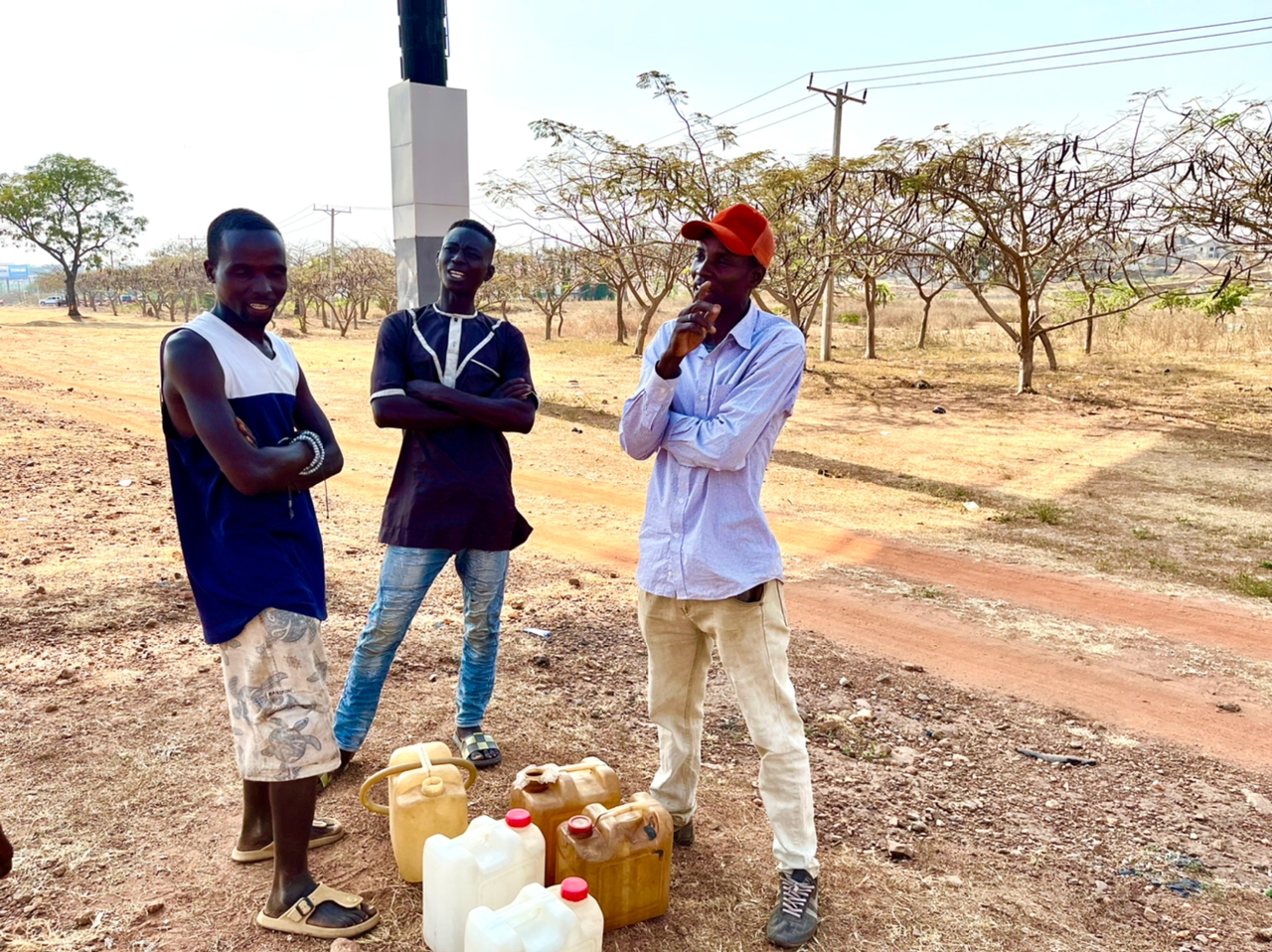
According to the black market fuel vendor, if the situation persists, it would only be a matter of time before they are at the shorter end of the stick, one way or the other.
Advertisement
“It’s true that the business is favourable to us, but I pray God gives me a legitimate business to do because one day, it will touch my side,” he says.
This reporter asks the other two colleagues if they agree with Mohammed’s wishes, and they shrug and smile.
Advertisement
But as the fuel scarcity in the country’s capital persists, conversations with dozens of black market hawkers and residents prove they’ll continue to be in a close toxic relationship with no end in sight.
With a hand resting lazily against her forehead and eyes sunken from fatigue, Grace Okonkwo (not her real name), a motorist, drives tiredly to fill the gap in the fuel queue in Mbora. For her, fuel scarcity is now a lifestyle in the country.
Advertisement
“Unfortunately, we have found ourselves in Nigeria. We’ll survive,” she says.
